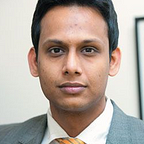TRAI(ing) to keep it neutral
[caption id=”” align=”alignright” width=”180" caption=”Image via Wikipedia”]
[/caption]
I feel the Internet is inherently discriminatory, however the basis of the discrimination is user preference and not its architecture. For eg. in the first few moments I am online I pop open a search engine and enter a query. I get websites which run into hundreds if not the millions. Here spoilt for choice, the output to a large extent controls my browsing and site activity. Hence depending on the search rank when I enter, for eg., “watch videos”, I click through to Youtube, metacafe or veoh. Beyond the search output, if one of these websites offers me a free upgrade on my internet connection speed, I will definitely opt in favor of that website, if the content (the video clip I want to watch) is the same. This will be possible through an agreement between my ISP and the website, where the website shares some part of its ad revenue for the free upgrade the ISP offers to its subscribers when it visits the website.
Here if the website is YouTube, the other websites such as metacafe and veoh will surely feel discriminated against. It may even erode their market share as web users may create accounts on YouTube and marry the YouTube site design. This explains the problem of network neutrality which has been briefly discussed in one of my blog posts.
Though network neutrality maybe more properly classified as an “argument” than a “problem”, I see more and more real world applications of it happening right here in India. I fear with the increased consolidation of corporates in content delivery, hosting and creation they will tilt content delivery systems in favor of content hosted and created by them or their affiliates. Such behavior will surely hurt entrepreneurs and start-ups.
The Telecom Regulatory Authority of India (TRAI) as far back as 2006 in a consultation paper on Internet Services noted that, “3.6.2 the situation may also arise in India as Internet access providers may use their market power to discriminate against competing applications and/or contents.” However, till recently the issue did not receive much press or public attention.
The Indian Premier League (IPL), 2010 which has gathered success and notoriety in equal amounts, also came to be the first public case and discussion of a breach of network neutrality in India. Here an ISP (Airtel) provided a free bandwidth upgrade of 2 mbs to its subscribers when they watched live cricket matches on a popular online video provider (YouTube). YouTube on its part ran a dedicated url (channel as per the YouTube site design) for IPL accessible at www.youtube.com/ipl. All of a sudden the India blogosphere exploded with discussions of the principle of “network neutrality” and ways to devise legal solutions to end this.
so whats the law on network neutrality ?
The short answer is there is no law in place to check on network neutrality as of now. Recently it has been reported in the Hindu Bussinessline that Google (interesting?) wrote to the TRAI advocating the adoption of a net neutrality regulation. It is relevant to state here that presently the TRAI promotes the principle of non-discrimination in most forms of telecommunications services. This includes access-service licenses include specific obligations on how licenses must provide services to subscribers. Licensees are also required to offer other licensees and service providers, non-discriminatory access to their facilities. Going further the regulatory set-up mandates that a licensee is forbidden from discriminating among its consumers and clients or giving special treatment to some at the cost of others.
The constant repetition of the obligation not to discriminate through the licenses and in TRAI documents has contributed to the gradual emergence of a customary rule of non-discrimination in telecom services. Recently MTS a CDMA telecom operator has announced the launch of its prepaid wireless internet service MBlaze with a base charge of Rs. 2 per mb. The catch is that the connection allows free Internet browsing of certain websites — Yahoo India, Wikipedia, Makemytrip, shopping.indiatimes.com and Cricinfo.com.
I expect this trend to grow, with the growth of internet services in the mobile market. Right now I think the time is ripe, for a consultation paper on network neutrality, where all stakeholders and policy wonks can have their say, for Network Neutrality is not a mere hypothetical any longer. Most people would agree that the Internet is a fantastic medium for obtaining information. What makes it so spectacular is that it is democratic and open. By open, I mean I am not stuck with 100 TV Channels but with hundreds of video sharing and viewing websites. These websites cater to my individual and esoteric tastes. To me this is the essence of the internet, it has something for everyone. Contrast this against a television, where I get stuck with unilateral programming, and content produced and telecast for a wide audience. I find myself quickly flipping through channels, finally giving up and switching of the tele. Here, I think it would be a shame if we trade our keyboards and mouses for remotes.
Related articles
- What’s up with Net Neutrality? (teknophilia.wordpress.com)
- ALA relays concerns about upcoming net neutrality order to FCC | District Dispatch (wo.ala.org)
- Comcast, Level 3, Network Neutrality, and your Internet (zdnet.com)
- Net Neutrality Supporters Question Genachowski Plan (pcworld.com)
